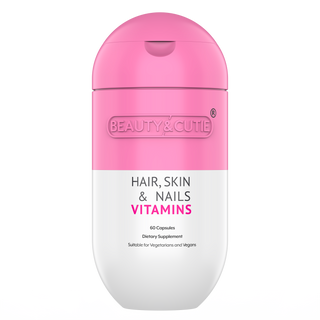Everyone wants healthy, glowing skin, but achieving that can be a challenge. In the quest for the perfect complexion, many of us turn to skincare products, but did you know that the key to beautiful skin may be in the foods you eat? Yes, you read that right – what you put on your plate can actually help you capitalize on your natural beauty.
In this blog post, we’ll be discussing some of the best foods you can eat for supple and glowing skin. These foods are packed with nutrients that nourish your skin from the inside out, helping to promote a healthy, radiant complexion. So, whether you’re dealing with dryness, dullness, or other skin concerns, incorporating these foods into your diet could be just what you need to get that coveted glow.
Let’s dive in and explore the best foods for glowing skin and how they can benefit you.
What Is Healthy, Glowing Skin?
Healthy, glowing skin is not just a matter of external care. It is a reflection of your overall health, and what you eat plays a vital role in achieving that radiant complexion. From a scientific perspective, healthy skin is skin that is well-hydrated and has a balanced pH level.
The skin's pH level typically ranges from 4.5 to 5.5, which is slightly acidic. This acidic environment helps to protect the skin from harmful bacteria and other environmental factors that can cause damage.
In addition to hydration and pH balance, healthy skin requires an adequate supply of essential nutrients such as vitamins, minerals, and antioxidants. These nutrients play a crucial role in collagen production, which is the protein responsible for keeping the skin firm, smooth, and elastic.
Deficiencies in any of these nutrients can result in dry, dull, or prematurely aging skin. By consuming a balanced diet rich in fruits, vegetables, whole grains, lean proteins, and healthy fats, you can provide your skin with the nutrients it needs to stay healthy and glowing.
What Are The Best Foods To Help Me Achieve Glowing Skin?
If you're looking for foods that can help you achieve supple and glowing skin, there are a number of options to consider. Some of the best foods for skin health include avocados, aloe vera leaf, apple cider vinegar, berries, bone broth, eggs, flax seeds, horsetail & nettle tea, nuts, oily fish, and organ meats.
Avocados are rich in monounsaturated fatty acids, along with lutein, zeaxanthin, phytosterols, vitamin E, vitamin A, niacin, and folate. Research has shown that avocado oil can lead to improved skin elasticity and a reduction in the area and volume of nasolabial folds when used topically, and daily avocado consumption can result in enhanced elasticity and firmness of facial skin.
Aloe vera leaf has numerous benefits when used topically, but ingesting it can also improve wrinkles and elasticity in photoaged skin by increasing collagen production and decreasing the expression of a gene that degrades collagen.
Apple cider vinegar contains acetic acid and polyphenolic compounds, as well as pectin, vitamins B and C, and small amounts of calcium, iron, magnesium, phosphorous, potassium, and sodium. It has been used for centuries to treat a variety of ailments, including dermatological conditions such as acne, eczema, and dandruff.
Berries are rich in vitamin C, which is essential for collagen production, as well as other antioxidants which can help promote healthy skin.
Some other alternatives to consider adding to your diet are:
- Salmon, Mackerel, Trout, or Sardines
- Walnuts
- Carrots
- Spinach
- Sunflower seeds
- Dark Chocolate
- Healthy oils
- Lemons and other citrus fruits
- Flaxseeds
- Soybeans
Is There Any Certain Type Of Diet That Is Beneficial For Glowing Skin?
Yes, there are certain types of diets that are beneficial for glowing skin. Eating a diet rich in foods that are high in antioxidants and anti-inflammatory properties can help improve the appearance and health of your skin. Foods like avocados, berries, oily fish, eggs, nuts, and flax seeds are great options.
Bone broth is also a great addition to your diet as it contains collagen and amino acids that are required for healthy skin. Aloe vera leaf and apple cider vinegar can also be ingested to reap their skin benefits.
Additionally, limiting sugar and processed foods in your diet can help prevent premature aging and other skin issues. Remember, a healthy diet is just one aspect of maintaining healthy and glowing skin, regular exercise, hydration, and adequate sleep are also important factors to consider.
Are There Any Specific Types Of Food That I Should Avoid For Glowing Skin?
Yes, there are certain types of food that may negatively impact the appearance of your skin. Foods high in sugar and refined carbohydrates can contribute to inflammation in the body, which can result in breakouts and dull-looking skin. Additionally, consuming too much dairy and processed foods may also have a negative impact on skin health.
It's important to have a balanced diet that includes plenty of fruits, vegetables, lean proteins, and healthy fats while limiting the intake of processed and sugary foods. Drinking plenty of water and staying hydrated can also help to promote healthy, glowing skin.
What Vitamins and Minerals Are Important For Glowing Skin?
There are a variety of vitamins and minerals that are important for glowing skin. Some of the key ones include:
- Vitamin C: This powerful antioxidant is essential for collagen synthesis, which helps to keep skin firm and youthful. Vitamin C is also known for its brightening effects on the skin and its ability to protect against UV damage.
- Vitamin E: Another potent antioxidant, vitamin E helps to protect the skin from free radicals and oxidative stress. It can also improve skin texture and reduce the appearance of fine lines and wrinkles.
- Vitamin A: Also known as retinol, vitamin A helps to promote healthy skin cell turnover and can improve the appearance of fine lines, wrinkles, and acne.
- Zinc: This mineral is important for wound healing and can help to reduce inflammation in the skin. It also plays a role in regulating oil production, which can be helpful for those with acne-prone skin.
- Selenium: Another antioxidant, selenium can help to protect the skin from sun damage and may even help to reduce the risk of skin cancer.
- Omega-3 fatty acids: These healthy fats are important for maintaining healthy cell membranes and can help to reduce inflammation in the skin. They are found in oily fish like salmon, as well as in flaxseeds and chia seeds.
Overall, a diet rich in fruits, vegetables, whole grains, and lean proteins can provide the vitamins and minerals necessary for healthy, glowing skin. It's also important to stay hydrated, so always make sure you're getting enough water!
Conclusion
In conclusion, achieving healthy, supple, and glowing skin involves more than just using expensive skincare products. It starts with proper nutrition and incorporating foods that are rich in vitamins and minerals that support skin health. Avocado, aloe vera leaf, apple cider vinegar, berries, bone broth, eggs, flax seeds, horsetail and nettle tea, nuts, oily fish, and organ meats are all excellent options to consider.
These foods provide a variety of benefits, including collagen synthesis, protection against free radicals and oxidative stress, healthy cell turnover, wound healing, and inflammation reduction.
In addition to incorporating these foods into your diet, staying hydrated, using natural skincare products, managing stress, and getting enough fiber in your diet can also help improve your skin's glow.
A healthy diet rich in whole, nutrient-dense foods and proper self-care can do wonders for your skin's health and appearance. So, don't forget to nourish your skin from the inside out and enjoy the benefits of a radiant complexion.
Final Thoughts
When it comes to looking and feeling your best, we at Beauty and Cutie have got you covered. Our specially designed supplement is packed with all the key vitamins, minerals, and amino acids that your hair, skin, and nails need to thrive. By promoting optimal cell production, we help to enhance the health and radiance of your hair, skin, and nails. Take your beauty to the next level with Beauty and Cutie.
Sources
- https://www.everydayhealth.com/skin-beauty/skin-ph-yours-healthy-why-it-matters-how-tell/
- https://www.uclahealth.org/news/eating-an-avocado-daily-increases-elasticity-and-firmness-in-skin-study-shows
- https://waverlydermspa.com/refined-carbohydrates-ruining-skin/
- https://www.verywellhealth.com/vitamin-c-for-skin-5084225
- https://www.healthline.com/nutrition/omega-3-benefits-on-skin-and-hair
*These statements have not been evaluated by the Food and Drug Administration. This product is not intended to diagnose, treat, cure or prevent any diseases.


